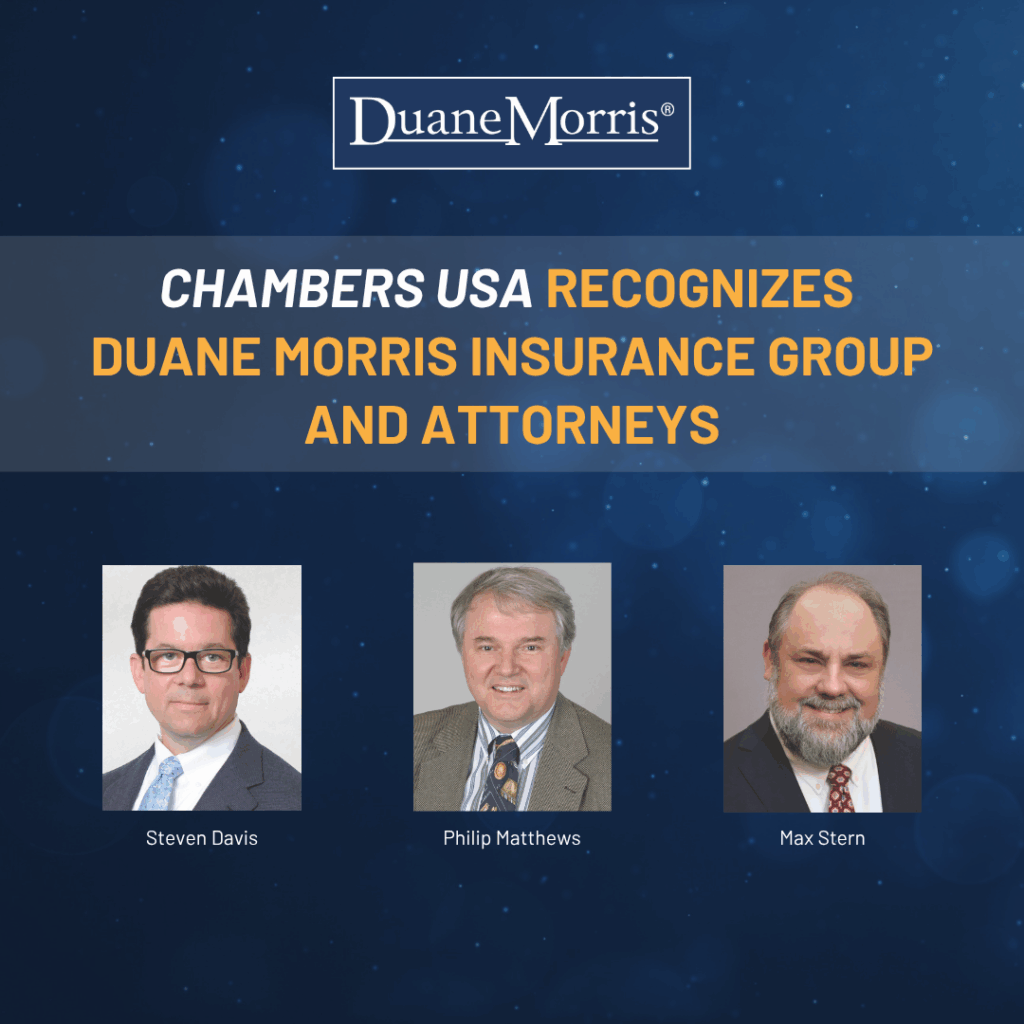By Max Stern, Terrance Evans, Todd Norris and Jessica La Londe
On August 8, 2024, in a case entitled John’s Grill v. The Harford Financial Services Group, No. S278481, the Supreme Court of California questioned the existence of the “so-called” illusory coverage doctrine under California law, as it concluded that a policyholder had, in any event, failed to satisfy its foundational elements.
John’s Grill suffered substantial losses during the COVID-19 pandemic. Its insurer denied coverage on various grounds including that the loss or damage claimed by John’s Grill did not fall within the insurance policy’s “Limited Fungi, Bacteria or Virus Coverage” endorsement. That endorsement generally excludes coverage for any virus-related loss or damage that the policy would otherwise provide, but it extends coverage for virus-related loss or damage if the virus was the result of certain specified causes of loss, including windstorms, water damage, vandalism, and explosion.
John’s Grill acknowledged that it could not meet the latter specified cause of loss limitation. Instead, it contended the limitation was unenforceable because it rendered the policy’s promise of virus-related coverage illusory. The Court of Appeal below agreed, and allowed John’s Grill’s claims for virus-related losses or damage to proceed.
Relying on “long-settled principles of contract interpretation,” the Supreme Court of California reversed, concluding that the “plain meaning of the policy govern[ed].” The Court stated that it “has never recognized an illusory coverage doctrine as such,” and rejected “the so-called illusory coverage doctrine [as articulated by John’s Grill],” stating that it “does not appear in our precedents.”
The Court went on to explain that even assuming some version of the doctrine did exist under California law, there were two hurdles John’s Grill would still need to clear before it could establish coverage, and it had not cleared either one in this case. First, in such a case, an insured would have to “make a foundational showing that it had a reasonable expectation that the policy would cover the insured’s claimed loss or damage.” The Court declared that “[s]uch a reasonable expectation of coverage is necessary under any assumed version of the doctrine.” Here, the Court concluded that based on the policy language limiting coverage to certain causes, John’s Grill could not have an objectively reasonable expectation the policy would provide coverage for all virus-related loss or damage, regardless of the cause. Second, the Court explained that even accepting John’s Grill’s articulation of the doctrine, it still could not demonstrate that coverage was illusory. The Court noted that restaurants handle both raw and cooked food, which could be contaminated by a virus and that “John’s Grill has not shown that the prospect of such contamination by water damage or other specified cause of loss is so unrealistic as to render the promised coverage illusory.” According to the Court, it is for the insured to consider the likelihood of benefiting from the policy’s limited virus coverage when obtaining coverage.


